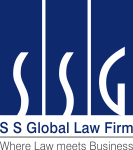I hereby revoke all former wills and codicils made by me and by this my last will bequeath and devise all my movable and immovable property whatsoever and wheresoever to my son Mr. ____ absolutely
I hereby appoint my son Mr.. _________ the sole executrix of this last will of mine.
IN WITNESS WHEREOF, I have to this my last Will set my hand this…………… day of ……………….
SIGNATURE OF TESTATOR
Signed by the above named testator in our presence at the same time and each of us has in the presence of the testator signed his name hereunder as an attesting witness.
WITNESSES:
1.…………………(Name and Address)
2.…………………(Name and Address)
